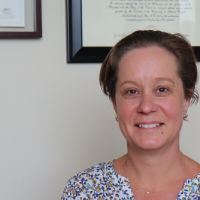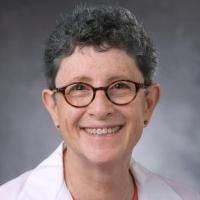Autologous Cord Blood Infusions Are Safe and Feasible in Young Children with Autism Spectrum Disorder: Results of a Single-Center Phase I Open-Label Trial.
Date
2017-05
Journal Title
Journal ISSN
Volume Title
Repository Usage Stats
views
downloads
Citation Stats
Attention Stats
Abstract
Despite advances in early diagnosis and behavioral therapies, more effective treatments for children with autism spectrum disorder (ASD) are needed. We hypothesized that umbilical cord blood-derived cell therapies may have potential in alleviating ASD symptoms by modulating inflammatory processes in the brain. Accordingly, we conducted a phase I, open-label trial to assess the safety and feasibility of a single intravenous infusion of autologous umbilical cord blood, as well as sensitivity to change in several ASD assessment tools, to determine suitable endpoints for future trials. Twenty-five children, median age 4.6 years (range 2.26-5.97), with a confirmed diagnosis of ASD and a qualified banked autologous umbilical cord blood unit, were enrolled. Children were evaluated with a battery of behavioral and functional tests immediately prior to cord blood infusion (baseline) and 6 and 12 months later. Assessment of adverse events across the 12-month period indicated that the treatment was safe and well tolerated. Significant improvements in children's behavior were observed on parent-report measures of social communication skills and autism symptoms, clinician ratings of overall autism symptom severity and degree of improvement, standardized measures of expressive vocabulary, and objective eye-tracking measures of children's attention to social stimuli, indicating that these measures may be useful endpoints in future studies. Behavioral improvements were observed during the first 6 months after infusion and were greater in children with higher baseline nonverbal intelligence quotients. These data will serve as the basis for future studies to determine the efficacy of umbilical cord blood infusions in children with ASD. Stem Cells Translational Medicine 2017;6:1332-1339.
Type
Department
Description
Provenance
Subjects
Citation
Permalink
Published Version (Please cite this version)
Publication Info
Dawson, Geraldine, Jessica M Sun, Katherine S Davlantis, Michael Murias, Lauren Franz, Jesse Troy, Ryan Simmons, Maura Sabatos-DeVito, et al. (2017). Autologous Cord Blood Infusions Are Safe and Feasible in Young Children with Autism Spectrum Disorder: Results of a Single-Center Phase I Open-Label Trial. Stem cells translational medicine, 6(5). pp. 1332–1339. 10.1002/sctm.16-0474 Retrieved from https://hdl.handle.net/10161/24593.
This is constructed from limited available data and may be imprecise. To cite this article, please review & use the official citation provided by the journal.
Collections
Scholars@Duke

Geraldine Dawson
Geraldine Dawson is the William Cleland Distinguished Professor of Psychiatry and Behavioral Sciences at Duke University, where she also is a Professor of Pediatrics and Psychology & Neuroscience. Dawson also is the Founding Director of the Duke Center for Autism and Brain Development, an NIH Autism Center of Excellence, which is an interdisciplinary research program and clinic, aimed to improve the lives of those diagnosed with autism through research, education, clinical services, and policy. Dawson received a Ph.D. in Developmental and Child Clinical Psychology from the University of Washington and completed a clinical internship at the UCLA Neuropsychiatric Institute.
Dawson's work focuses on improving methods for early detection and intervention for autism, understanding brain function in autism, and validation of autism EEG biomarkers. She co-developed the Early Start Denver Model, an empirically-validated early autism intervention that is used worldwide. She collaborates with colleagues in the departments of computer science and engineering, pediatrics, and biostatistics to develop novel digital health approaches to autism screening and outcome monitoring.
Dawson previously served as Director of the Duke Institute for Brain Sciences, President of the International Society for Autism Research, and was appointed by the US Secretary of Health as a member of the NIH Interagency Autism Coordinating Committee (IACC) which develops the federal strategic plan for autism research, services, and policy. Dawson is a member of the American Academy of Arts and Sciences. She was Founding Director of the University of Washington (UW) Autism Center and the Duke Center for Autism and Brain Development. Dawson's awards include the American Psychological Association Distinguished Career Award (Div53); Association for Psychological Science Lifetime Achievement Award; Clarivate Top 1% Cited Researcher Across All Scientific Fields; among others. Dawson is a Fellow of the International Society for Autism Research, the American Psychological Society, and the American Psychological Association.

Jessica Muller Sun

Lauren Franz
Dr Franz's research focuses on improving access to evidence-based services and support for neurodevelopmental disabilities, including autism, in low-resource, local and global communities.

Jesse David Troy
I am the Associate Director of Graduate Studies for the Master of Biostatistics program. I am also a co-director of the Clinical Research Training Program. My current research is in cancer therapeutics and palliative care at the Duke Cancer Institute.

Joanne Kurtzberg
Dr. Kurtzberg is an internationally renowned expert in pediatric hematology/oncology, pediatric blood and marrow transplantation, umbilical cord blood banking and transplantation, and novel applications of cord blood and birthing tissues in the emerging fields of cellular therapies and regenerative medicine. Dr. Kurtzberg serves as the Director of the Marcus Center for Cellular Cures (MC3), Director of the Pediatric Transplant and Cellular Therapy Program, Director of the Carolinas Cord Blood Bank, and Co-Director of the Stem Cell Transplant Laboratory at Duke University. The Carolinas Cord Blood Bank is an FDA licensed public cord blood bank distributing unrelated cord blood units for donors for hematopoietic stem cell transplantation (HSCT) through the CW Bill Young Cell Transplantation Program. The Robertson GMP Cell Manufacturing Laboratory supports manufacturing of RETHYMIC (BLA, Enzyvant, 2021), allogeneic cord tissue derived and bone marrow derived mesenchymal stromal cells (MSCs), and DUOC, a microglial/macrophage cell derived from cord blood.
Dr. Kurtzberg’s research in MC3 focuses on translational studies from bench to bedside, seeking to develop transformative clinical therapies using cells, tissues, molecules, genes, and biomaterials to treat diseases and injuries that currently lack effective treatments. Recent areas of investigation in MC3 include clinical trials investigating the safety and efficacy of autologous and allogeneic cord blood in children with neonatal brain injury – hypoxic ischemic encephalopathy (HIE), cerebral palsy (CP), and autism. Clinical trials testing allogeneic cord blood are also being conducted in adults with acute ischemic stroke. Clinical trials optimizing manufacturing and testing the safety and efficacy of cord tissue MSCs in children with autism, CP and HIE and adults with COVID-lung disease are underway. DUOC, given intrathecally, is under study in children with leukodystrophies and adults with primary progressive multiple sclerosis.
In the past, Dr. Kurtzberg has developed novel chemotherapeutic drugs for acute leukemias, assays enumerating ALDH bright cells to predict cord blood unit potency, methods of cord blood expansion, potency assays for targeted cell and tissue based therapies. Dr. Kurtzberg currently holds several INDs for investigational clinical trials from the FDA. She has also trained numerous medical students, residents, clinical and post-doctoral fellows over the course of her career.
Unless otherwise indicated, scholarly articles published by Duke faculty members are made available here with a CC-BY-NC (Creative Commons Attribution Non-Commercial) license, as enabled by the Duke Open Access Policy. If you wish to use the materials in ways not already permitted under CC-BY-NC, please consult the copyright owner. Other materials are made available here through the author’s grant of a non-exclusive license to make their work openly accessible.
